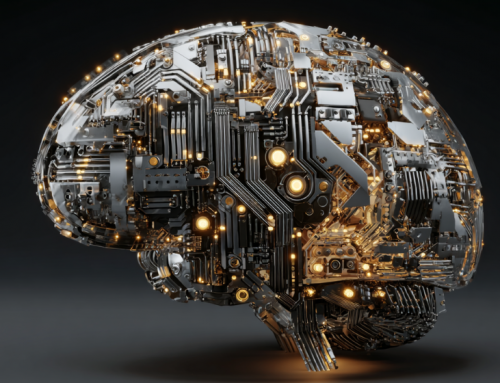
Musk’s “Telepathy” implant, designed to aid individuals with paralysis, empowers them to control computer cursors or keyboards using their thoughts. (Source: Image by RR)
With FDA Approval, Neuralink Implants First Brain Chip into Human to Control Devices
Elon Musk’s brain-machine interface company, Neuralink, has successfully implanted its first cybernetic device into a human, marking a significant milestone in the development of brain-computer interfaces (BCIs). Musk announced on social media platform X that the procedure had been completed, with initial results showing promising neuron spike detection.
Neuralink’s primary goal is to create BCIs that allow individuals to control computers and mobile devices using their thoughts. The company had previously received approval from the Food and Drug Administration (FDA) to implant brain chips in humans, which was approved in September. The company then recruited participants for its first-in-human clinical trial of a wireless BCI.
The implanted device, called “Telepathy” by Musk, is designed to assist people with paralysis, enabling them to control computer cursors or keyboards through their thoughts. The surgical procedure involves a specialized robot inserting the Neuralink chip into a brain region responsible for movement intention. This implant is equipped with 64 flexible threads and 1,024 electrodes for recording neural activity, which is then wirelessly transmitted to an app capable of decoding the user’s intended movements.
The implanting process employs a robot with five camera systems, utilizing optical coherence tomography for noninvasive brain tissue imaging. The robot uses an ultra-thin needle to implant the device, which is about the size of a large coin.
Beyond assisting paralyzed individuals in regaining mobility and facilitating faster communication, Neuralink’s long-term vision includes helping patients fully restore mobility and sensory functions, such as sight. The successful implantation represents a significant step forward in the development of BCIs and their potential to enhance the lives of individuals with disabilities.
Read more at usatoday.com







Leave A Comment